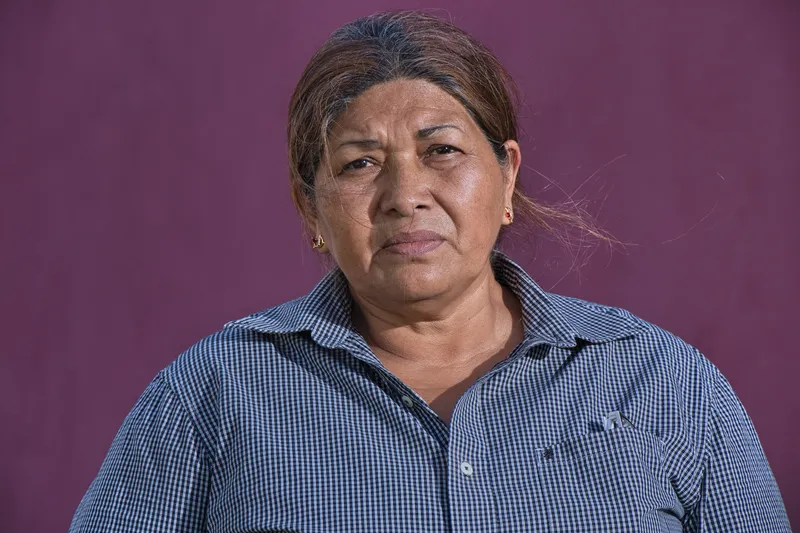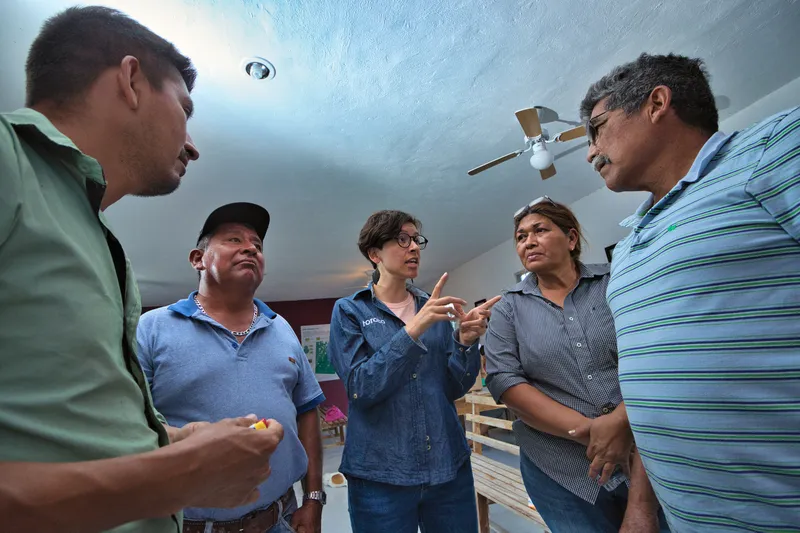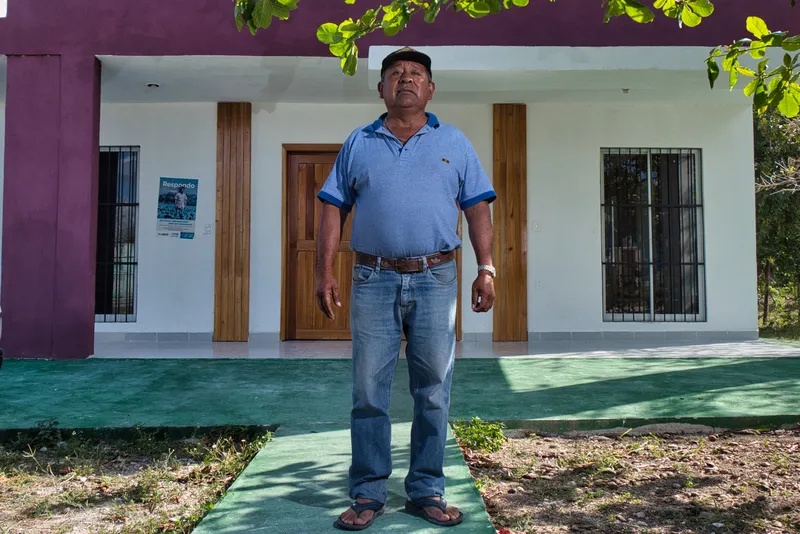The voices of change: testimonies from the Kilometer 120 ejido about its first carbon project



Immersed in the vast jungle that characterizes the Mesoamerican Biological Corridor and the Calakmul Biosphere Reserve, is Kilometer 120, an ejido of more than 9,000 hectares located in the state of Campeche, Mexico and with a close commitment to the conservation of its natural resources. 'For many years we have been conserving these lands; for more than 30 years I have not thrown down a single tree, I have always taken care of the jungle because I know that the jungle gives us much more than you think. It's my family's heritage,” says Guadalupe Pérez García, member of the Supervisory Board of the Kilometer 120 ejido.
A few years ago we started a first forest carbon sequestration and nature conservation project with this large ejido. Today, the day of the presentation between the buyer and the community (after signing the sales agreement a few weeks ago), we can celebrate the sale of their first carbon credits, thus addressing the environmental problems of the region - which is vulnerable due to the rate of deforestation and land use change that characterizes the town - and promoting an improvement in the quality of life of the community.
'We have been waiting for this project for a long time, it is an achievement that today became a reality. We are very happy because the biodiversity we have is enormous and benefits us all. With this project, we have the goal of continuing to conserve our jungle and to improve the care of our forest day by day. Today we saw the whole community, everyone was happy; we also met with SOSETEC, with Toroto, the buyer, all happy equally. It's a great achievement for our people.” For Toroto it's a great achievement as well.
Just as Ezequías Arcos Pérez, Secretary of the Ejido Commissioner's Office, tells us about the happiness he perceives in his community, his brother, Misael Arcos Pérez, part of the Supervisory Board, reflects on the importance of reinvesting the economic benefit they will obtain in continuing to care for their natural resources: 'The idea is to continue investing in our lands, and to continue to protect our forests. There is a lot of work to do, we have to make trails, reforest, take care of the bees, conserve; if it's about working, we have to work!
If we finish the mountain, Our children no longer have assets, they no longer have animals: neither turkey, jaguar, nor deer. Our children have never seen a jaguar, I have. I want them to see one. They are going to enjoy this biodiversity in the future. The community is happy with the sale of the bonds, and I am very proud to be participating in this project. There was a time when we all suffered [because it's difficult to live on natural resources], but everything comes in time. This sale is going to impact an entire generation, because this benefit isn't for one, it's for everyone. And why not continue to reforest and conserve? It is the most viable thing to continue to generate jobs and continue to care for our lands'.

María Jesús López, Filimón Pérez, Rocío Bárcena [Toroto team], Zacarías Pérez Álvarez and Antonio López Gutierrez
At Toroto, it seems essential to ensure the permanence of the projects we develop, as it translates into long-term safeguards for both the community and the environment. We promote this through an annual reinvestment scheme in climate action, where both the ejidatarians and us in Toroto allocate a percentage of the economic benefit to continue carrying out actions for the conservation and restoration of ecosystems. 'With the profit we want to reinvest to continue working our forest. As a productive project, we would like to further strengthen beekeeping, expand our apiary,” says Alsides Pérez Álvarez, Ejidal Coordinator of the project.
Although there are many sustainable productive activities that the ejido wants to promote with the economic benefit they will receive, one thing is key: no matter if it is beekeeping, ecotourism or regenerative agriculture, the feeling of hope for the future, in its heritage, in its territory, is so great that we can finally glimpse a profitable way of life based on the conservation of nature. 'One day I thought about dismantling my plot because I didn't have any money, but when I saw that beautiful wood I didn't want to sell it anymore. I invite all people who have jungles to take care of their jungle, because it is their family's heritage,” Guadalupe intervenes.
The feeling of pride is a feeling we share. We are moved to see these projects in operation, to hear the voices of those who make this truly possible. Build bonds based on trust and mutual respect.

Filimón Pérez Álvarez, President of the Kilometer 120 Ejidal Commissariat
Without more than thanks to those who fight every day for a better world, we close with the words of María Jesús López López, Treasurer of the Ejido Kilometer 120 and with a deep sense of certainty that together we can build that better world that she wants for her children.
'We are celebrating in the community for having completed this sale. We are happy as a people to take care of our land, our jungle, our flora and our fauna. My expectations are that the situation of the planet will improve day by day: air quality, that our nature will recover, that our communities have a fair economic income, to know that we are going to seek a better planet for our children. It does make me sleepy to think about what world we are going to leave to our children. I like to see how the kids take care of the plants, I always think 'it's time to rescue nature' and thanks to Toroto who gave us the opportunity and who trusted us, we are doing it. I feel like a dream came true. It's good to reinvest because this is what we've been fighting for for years, yet money can't be eaten. That's why we must use it to take care of our land and transform our resources.
Join, I would say to the other ejidos, as ejidatarios and owners of the land, we can give our families a better quality of life and protect our biodiversity'.

María Jesús López López, Treasurer of Kilometer 120
Explore reflections, research and field learning from our work in ecosystem restoration.